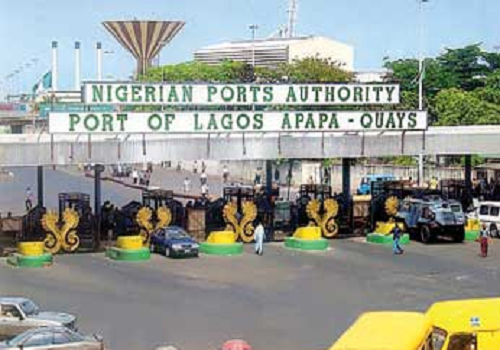Stakeholders in the maritime sector on Tuesday said that the Federal Government’s policy on cargo palletisation would cost Nigerian importers about $60 million (N18.6 billion) annually and might increase cargo diversion if implemented.
The stakeholders said this at a town hall Meeting organised by a Maritime Media Consulting Firm, “Ships & Ports’’ in Lagos.
According to a communique issued at the end of the meeting, the stakeholders also in their resolution said that the policy will increase diversion of Nigerian-bound cargoes to ports of other neighbouring countries that will not be implementing the policy.
The communiqué stated that, “there will be the likely importation of strange organisms into the country through wooden pallets and the management of the pallet waste after use. ”
Speaking at the meeting, the National President of the Association of Nigerian Licensed Customs Agents (ANLCA), Mr Olayiwola Shittu said the palletisation policy had no benefit for the country.
Shittu argued that the policy would further breed corruption at the ports.
“The policy will be difficult for shippers because we are an import-dependent nation.
He said that palletisation would enhance corruption in the ports, as a good chunk of the internally generated revenue at the ports would go into private pockets.
“Palletisation should not be our priority, rather let us look at how
we can improve services at the ports,’’ he said.
General Manager, Shipping of SIFAX Group, Mr. Henry Ajoh, who represented the Executive Vice Chairman of SIFAX Group, Dr Taiwan Afolabi, expressed fears over the implementation of the new policy, stating that “it cannot work in Nigeria’’.
According to Ajoh, what the ports need urgently is enhanced cargo examination system to facilitate ease of doing business.
“We need scanners. Government needs to deploy technology in the ports so that Customs officials would do thorough examinations of cargoes before releasing processes.
“That is the way to go. Palletisation takes us backward and cannot work in Nigeria.”
The Managing Director of CMA CGM – a leading container carrier operating in the country, Mr Todd Rives, said that the policy would lead to a loss of over $60 million annually.
He warned that the policy must be thoroughly thought about by government before considering its execution.
In his remarks, the Executive Secretary, Nigerian Shippers’ Council (NSC), Mr Hassan Bello, said that palletisation of cargo was in line with international best practice.
Bello said the introduction of the policy in Nigeria was to enhance physical examination of cargoes by the Nigeria Customs Service (NCS).
He also noted that there were cargoes that could
not be palletised.
Bello said that as a Council, it had to listen to stakeholders and take their concerns to the relevant government authorities.
The Town Hall Meeting, which had the theme “Whither the Palletisation Policy”, was attended by an array of maritime industry stakeholders including the representatives of the Nigerian Shippers’ Council and the
Nigeria Customs Service.
Others were representatives of the Nigerian Maritime Administration and Safety Agency (NIMASA), Sifax Group, Standards Organisation of Nigeria (SON), Maersk Line, Manufacturers Association of Nigeria and the Lagos Chamber of Commerce and Industry (LCCI).
Also in attendance were representatives of the Association of Nigerian Licensed Customs Agents (ANLCA), Association of Maritime Truck Owners
(AMATO), Ports Consultative Council, shipping companies and terminal to operators, among others. (NAN)



Leave a Reply